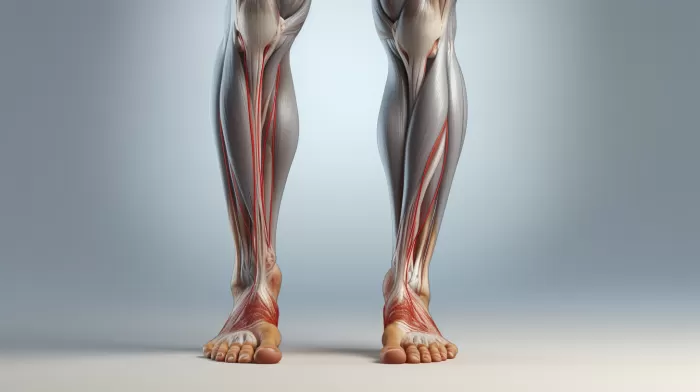Restless leg syndrome (RLS), an inflammatory condition and nighttime neurological disorder, can affect up to 12 million Americans. It is often characterized by an uncontrollable urge to move the legs or involuntary leg twitching while at rest. The sensations caused by RLS can be a feeling of tingling, aching, itching, or slight burning deep in the lower legs, and occasionally in the thighs, feet, hands, or arms. Moving the legs often brings relief to RLS sufferers.
Conventional medicines for RLS include quinine sulfate, dopamine stimulators such as Mirapex, Neupro, Requip, and levodopa, benzodiazepines for sedation such as Valium, Ativan, Xanax, Klonopin, etc., and anti-seizure medications like Tegretol, Lyrica, and Neurontin. However, these drugs have side effects and may not be effective for everyone.
There are certain chronic health conditions associated with RLS, as inflammation in one organ system is likely to be present in others. Some food components that can worsen RLS include aspartame, caffeine, gluten, monosodium glutamate (MSG), alcohol, tobacco, and refined sugar. Certain prescription medications may exacerbate the condition, including antinausea drugs, antipsychotic drugs, antidepressants, and cold/allergy medications. Sleep deprivation can also worsen the condition.
Nutritional deficiencies may contribute to RLS. Minerals such as magnesium and calcium are known to relax muscles. Symptoms of low magnesium include tremor, muscle twitching, involuntary jerks, and tetanic cramps, which are similar to RLS symptoms.
Deficiencies of folate (a B vitamin) and iron have also been shown to be associated with RLS. Nutrient deficiencies can contribute more readily than previously thought, as there is a relationship between gut health and brain function/psychology. The nutrient deficiencies commonly found in patients with neurological disorders include magnesium, zinc, selenium, copper, calcium, manganese, sulfur, phosphorus, iron, potassium, vanadium, boron, vitamins B1, B2, B3, B5, B6, B12, C, A, D, folic acid, Omega-3, 6, 9 fatty acids, taurine, alpha-ketoglutaric acid, and glutathione.
Since chronic inflammation usually begins in the gut, focusing on food intake can help alleviate RLS. Refined sugar, bread, and other processed foods must be replaced by whole foods. Consuming at least half of your food intake as raw fruits and vegetables can help to balance the body’s inflammation.
Nutrient supplements can help overcome RLS symptoms, too. These include:
– Probiotics to establish a healthy flora and tissue lining.
– Calcium, magnesium, and zinc- minerals required for normal nerve function.
– B vitamins to build healthy nerve tissue.
– CoEnzymeQ10 as an antioxidant and ATP-generator.
– Fish oil or krill oil (6 grams daily) to fight inflammation and heal nerve tissue.
– Sphingomyelin, phosphatidylcholine, or phosphatidylserine, known to be healing specifically for nerve tissue disorders.
– Ginkgo biloba extract to help improve nerve cell function and acts as an antioxidant.
– Butcher’s broom: Symptoms such as heaviness in the legs, tingling, and a sensation of tension improved in a placebo study.
– Valerian root for symptom relief via sedation at night.
Simple ways to help relieve RLS include leg massages, hot baths or heating pads, or even cool packs before bedtime applied to the legs. Acupuncture, exercise, and yoga have also been used with success. While RLS can be distracting and painful, properly addressing the root causes can help to mitigate the condition without the use of prescription drugs.



